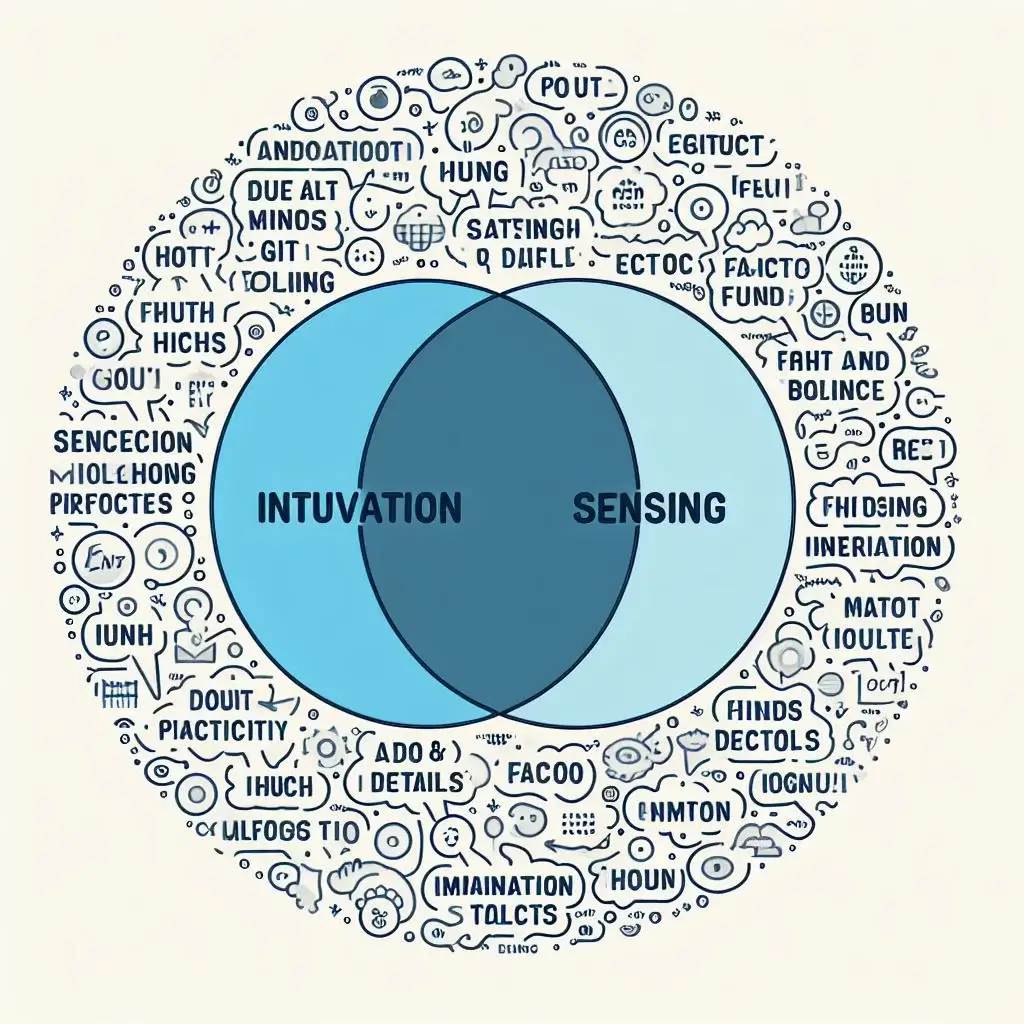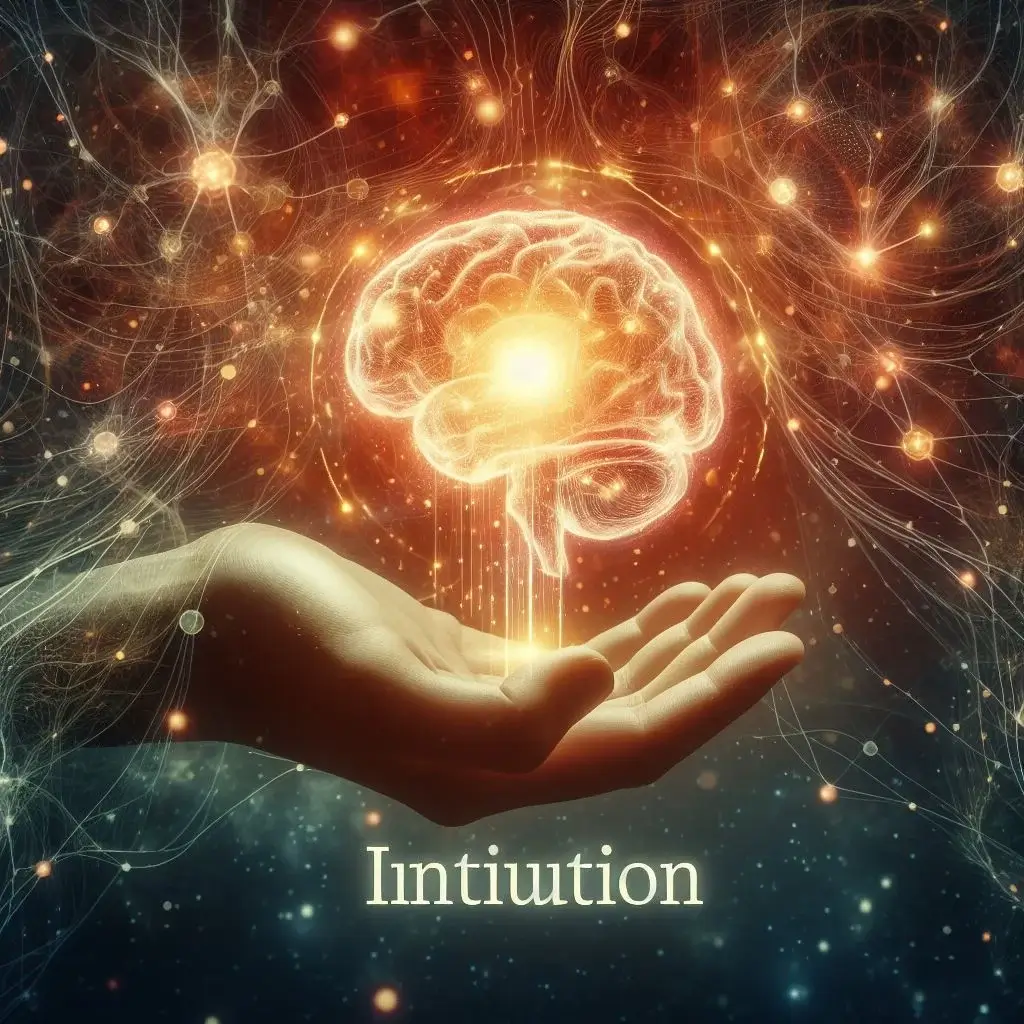Intuition vs sensing are two separate notions with unique sets of qualities that distinguish them from one another. Intuition is sometimes known as a “gut feeling” or foresight-sensing, whereas sensing is a far more logical approach based on facts and evidence.
Intuition vs Sensing Detailed Discussion
Intuition
What distinguishes intuition from sensing is the manner in which data is handled. Intuition is more concerned with feelings in response to an event or circumstance, whereas sensing is more concerned with reasoning that takes into consideration measurable data points such as statistics, facts, and statistics. Intuition is an inner feeling – a firm conviction based on gut emotions instead of evidence – whereas sensing is more concerned with supported evidence appraisal of available data.
Intuition is important in everyday activities because it helps us to make accurate judgments without relying just on evidence or reasoning. It assists us with detecting trends or patterns that rational reasoning alone might fail to identify by giving us an impression of being aware of the world around us despite the fact we lack tangible proof to back our opinions. For instance, intuition can assist us in determining whether somebody may have concealed agendas underlying their words or behavior before we receive every bit of the data.
Sensing
Sensing, on the other hand, not only assists us in rationally analyzing facts but also offers us knowledge about possible hazards linked with specific judgments that intuition may ignore. For example, investing in shares or real estate based only on instinct may impair our capacity to conduct thorough research since there is no assurance that our gut instinct will always guide us in the correct route. As a result, by considering facts such as the performance of stocks throughout time or present valuations of real estate, For instance, we may make better judgments that minimize risk to the greatest extent feasible.

Importance of Intuition
Intuition is also crucial in making choices and can assist you in making educated judgments fast regardless of whether you have all of the data. Intuition assists us in further understanding the motivations behind statements or behaviors, as well as providing knowledge about the hazards connected with specific decisions as we perform them. As an example, intuition can inform us that an individual seems dishonest or that a specific stock purchase might not be an appropriate decision for you in the long run, despite its initial appeal.
In addition, intuition offers distinct advantages in problem-solving settings by helping you brainstorm differently and arrive up with inventive answers that would not ordinarily come to us via standard thinking approaches. We may also more quickly make links between apparently unrelated elements, leading to more educated choices when making complicated selections such as corporate strategy or major decisions such as property investments.
Intuition vs Sensing Use Both for Results
A mixture of intuition vs sensing may be a very effective strategy for reaching great results. When you combine intuition alongside rationality-evidenced methods, you receive superior results since you gain from both comprehensive viewpoints and statistical evaluation, ensuring that all elements are addressed prior to taking any sort of decision.
- To begin with, intuition helps us to think beyond the box and come up with innovative solutions to complicated situations because it lets us make links among seemingly unconnected aspects and search for patterns that might have gone undetected if we only relied on facts and data. This allows us to arrive at better-informed judgments in less time, especially when the information is not enough.
- Intuition is linked to greater mental agility, which is important in professional as well as personal interactions. We can arrive at more efficient judgments and develop deeper connections by recognizing emotional signs that other people might ignore, like minor gestures or expressions on the face, or by knowing how individuals are going to feel in particular scenarios. Sensing gives us logical thinking abilities that allow us to rationally analyze our alternatives before acting on them. This allows us to make more accurate assessments of the risks connected with specific actions while preventing impulsive judgments that might be harmful in the long run.
- Third, intuition vs sensing is proven scientifically to be advantageous for recalling memories as well as educational tasks since it can tie things collectively more readily than conventional methods such as memorizing or drill-and-practice techniques individually. This implies that combining intuition and sense may assist you in recalling more knowledge faster while also helping you implement the information you’ve acquired in real-world circumstances.

Intuition vs Sensing Using Only One
Due to an inadequate appraisal of our available alternatives, focusing entirely on intuition vs sensing without taking into account the other may prohibit us from obtaining our intended results. For instance, if we make a career selection completely on intuition without considering any rational criteria such as wage potential and work security, our choices might not be as rewarding or safe as we had thought.
Using Only Intuition
Making judgments only on intuition or feeling might have catastrophic consequences. When intuition is overused, it may result in rash conclusions that ignore any factual facts that could give more understanding of the subject at hand. This is particularly problematic when making judgments involving other individuals or their welfare since intuition itself can sometimes not be sufficient to fully appraise the circumstance and make a sensible judgment call.

Using Only Intuition Sensing
Overreliance on feeling may give rise to an excessively cerebral approach to making choices, in which intuition is completely ignored in favor of hard data and proof. Although this technique has validity and can assist in lessening risks connected with specific decisions, it frequently overlooks the arbitrary character of many judgments that need intuition owing to their complexity and unpredictability. Furthermore, even if there is lots of information available, intuition might still be needed since intuition may reveal insights that statistical analysis may ignore, such as possible hazards connected with specific decisions that may not always be detected through statistics alone.
Check this blog for Whiteboarding Session Tips







